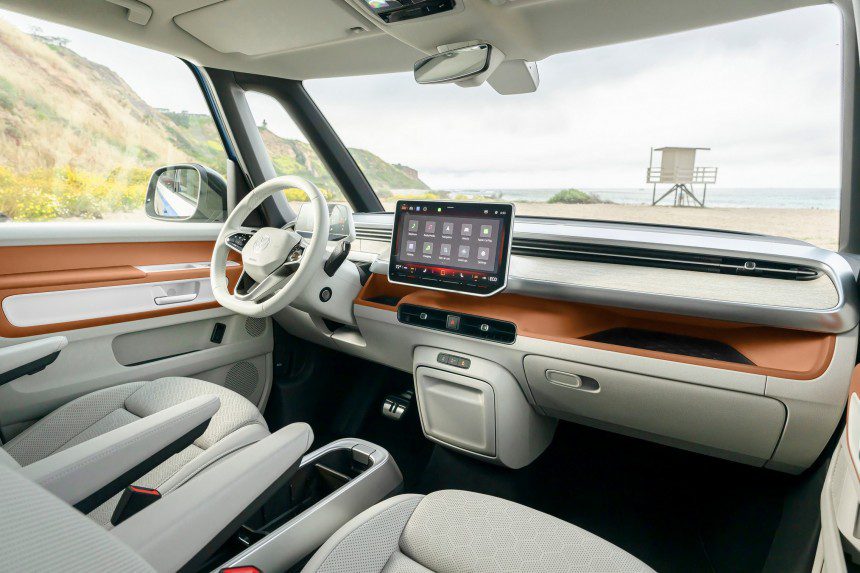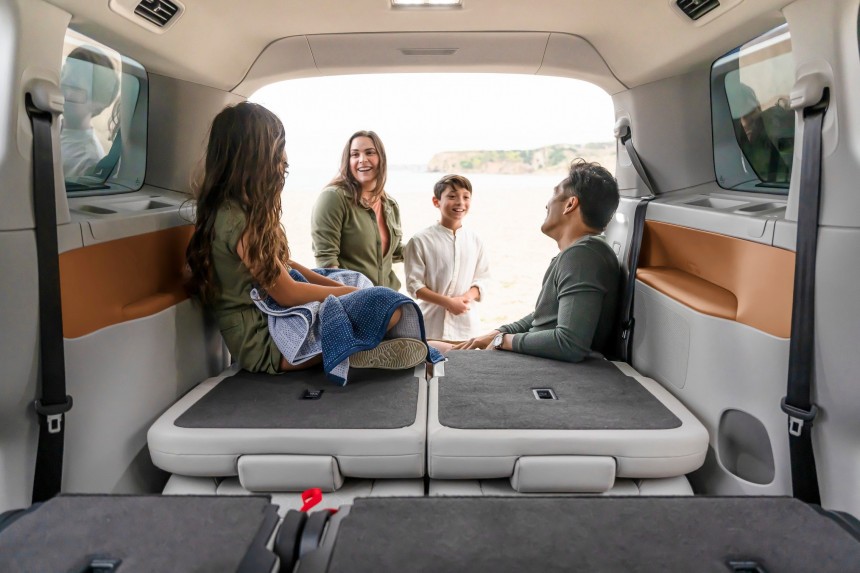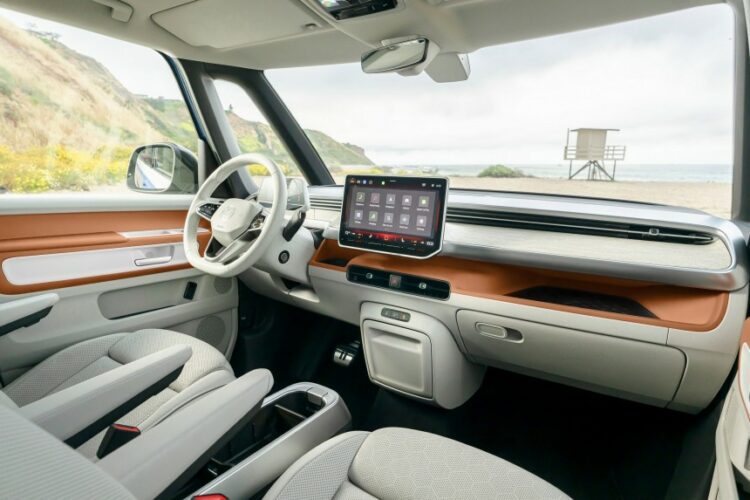Volkswagen seduced people in the US with the slick ID. Buzz that promised to revive the appeal of the legendary Type 2 Bus from the 1950s. Having an electric minivan with great DNA to support life off-grid has always been a dream for many. However, when Volkswagen revealed the pricing and final details, everyone was disappointed, pointing to a new Volkswagen failure in the EV arena.
If you’ve been following EV news, you already know that Volkswagen is not doing very well despite announcing an ambitious program to surpass Tesla. Unlike the EV startup, which is flooding the market with very attractive electric vehicles in key segments, Volkswagen has scaled down its EV plans. After Herbert Diess was ousted in 2022, the new management decided that electric vehicles were a waste of money and put previous plans on hold or scrapped them altogether.
Volkswagen’s cutting-edge SSP architecture was planned to launch in 2026 to replace the MEB platform, which debuted in 2019 with the ID.3. However, the new management has pushed it back to at least 2029, leaving Volkswagen with an aging EV platform that has very few strong points. The MEB architecture may have been a good stepping stone during the early days of electrification. Still, it can’t compete with more advanced architectures (Hyundai’s E-GMP is a prime example) that rule the EV market nowadays.
However, the Volkswagen Group stubbornly develops new vehicles using the MEB architecture across its many brands. No matter the name or the looks, they are basically just re-bodied ID.4s. This means they share the same problems that have annoyed Volkswagen customers since the beginning. These include subpar software, lackluster performance, modest charging speeds, and, in most cases, outrageous prices for what they offer.

Photo: Volkswagen
This hasn’t changed with the launch of the ID. Buzz, not that anyone expected it. However, people looked at Volkswagen’s electric minivan fondly, remembering the great time they had with the Type 2 Bus in the 1950s and its successors up until the Vanagon. What everyone expected was an electric Bus to remind them of Volkswagen’s golden times. Instead, the ID. Buzz reminded everyone of the company’s failure to conquer the US market in the years that followed.
Starting at $60K in the US, the Volkswagen ID. Buzz is not exactly an affordable vehicle. After seeing the European prices, however, nobody expected it to be cheap. With its retro styling and spacious three-row cabin, the ID. Buzz was expected to make Americans happily open their wallets. Instead, everyone is now pondering what they get for the money, and the truth is, not very much. That is, if we don’t count the painful memory of its grand grandfather.
The Volkswagen ID. Buzz might have a cute face and spacious cabin, but it’s hard to price these at over $60K when you look at its specs. A bold price like this creates certain expectations, which, sadly, the ID. Buzz fails to fulfill. The range, which hovers around 230 miles regardless of the configuration, is more worthy of a Nissan Leaf rather than a family adventure vehicle. With the ID. Buzz, it’s more likely that the true adventure is getting to the next charger instead of exploring the unknown.
Add to that the influence of cold weather and higher consumption when driving on a highway, and you’d be lucky to reach 200 miles on a charge. This makes me wonder what the use of such a vehicle is if road-tripping is not its strong point. As a people hauler, there are more accomplished electric vehicles in this price segment, with the recently launched Kia EV9 as the prime contender.

Photo: Volkswagen
The disappointing range is not the result of Volkswagen skimping on battery capacity. The Germans went above and beyond and installed a 91-kWh battery pack between the ID. Buzz’s wheels. The fact that the electric minivan depletes it completely in little over 230 miles speaks volumes about its efficiency or lack thereof. It’s not only the shape that counts but also the ailing MEB architecture, which is no efficiency champion. Despite Volkswagen promising more efficient drive units, the ID. Buzz doesn’t seem to benefit from this improvement.
Had Volkswagen released the ID. Buzz in 2022, as originally planned, it most certainly would’ve set the sales charts on fire. Back then, a 230-mile range wouldn’t have raised so many eyebrows as today, and the price would’ve been more palatable, too. Sure, it would’ve been a lousy road trip vehicle, but many people would’ve forgiven that for the sake of having a modern-day Microbus powered by electricity.
In 2024, when most people who wanted an EV had already bought one, I can’t see the ID. Buzz as anything but a niche model. And a bad one at that, inheriting all the cost-cutting mistakes Volkswagen made with its other ID. vehicles. Not to mention that it arrived in the US market at a time when all the goodwill toward the brand had been exhausted after years of Volkswagen annoying its customers with poorly judged decisions.
At a time when “the roof is on fire,” as Volkswagen CEO Thomas Schaefer said a year ago, the German carmaker desperately needed a win in the US market. However, the ID. Buzz is nothing of the sort, with the projected low volumes making it more of a curiosity than a halo model. Not that the electric minivan has seen better success in Europe. Less than two years after launch, sales in Germany dropped to just 177 vehicles over a three-month sales period. I’d say there’s no buzz left for Volkswagen EVs.
Source link : http://www.bing.com/news/apiclick.aspx?ref=FexRss&aid=&tid=66c947a6b10f4515959ea0026d2d9a83&url=https%3A%2F%2Fwww.autoevolution.com%2Fnews%2Fno-buzz-the-2025-volkswagen-id-buzz-is-an-overpriced-underachiever-238839.html&c=12069233421686965249&mkt=en-us
Author :
Publish date : 2024-08-23 10:39:00
Copyright for syndicated content belongs to the linked Source.
